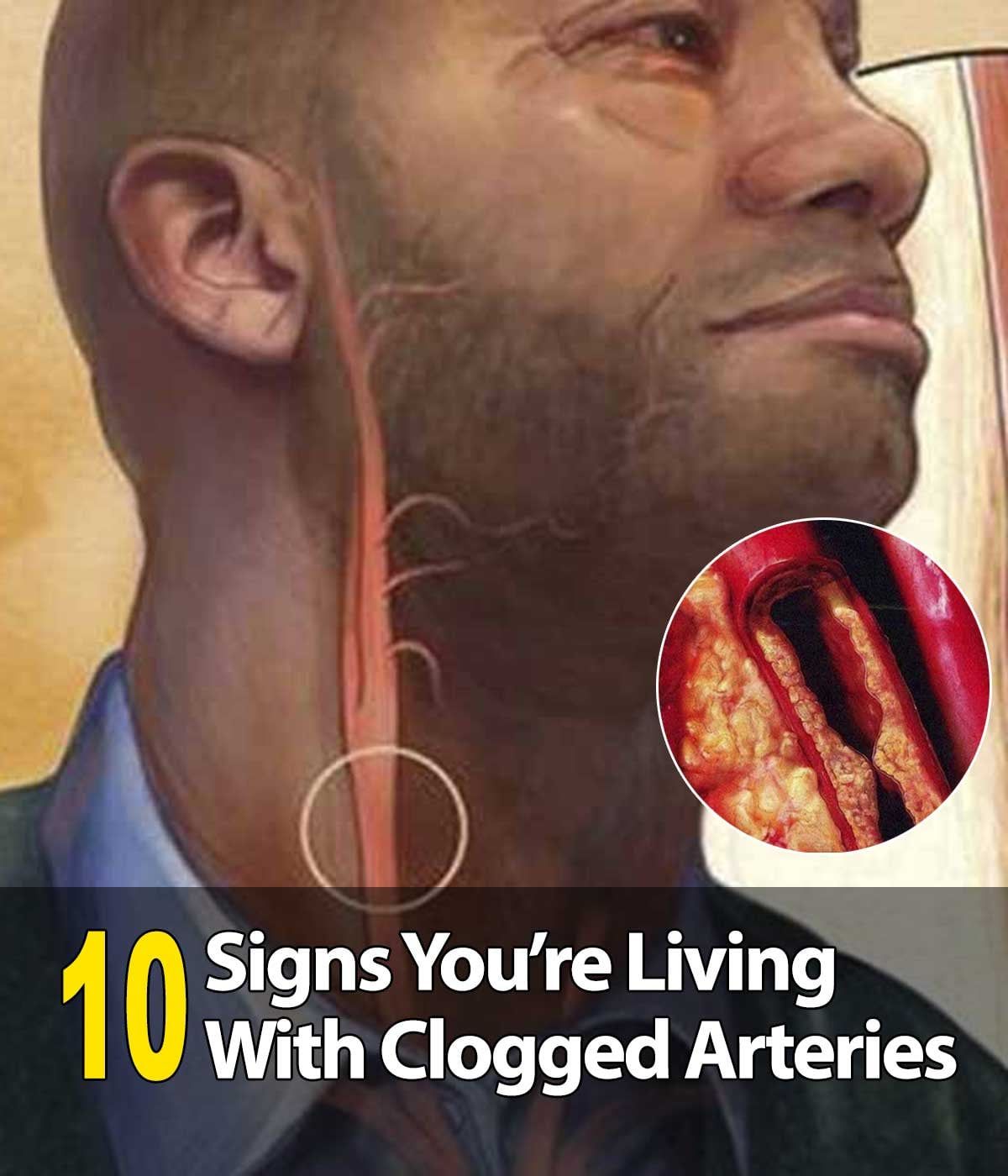10 Signs You May Be Living With Clogged Arteries

When arteries become narrowed or blocked due to plaque buildup, it limits blood flow to vital organs and tissues — especially the heart, brain, and limbs. This condition, called atherosclerosis, develops slowly and often silently. But these 10 warning signs may be your body’s way of asking for attention.
1. Chest Pain or Pressure (Angina)
- What it feels like: Tightness, squeezing, heaviness, or burning sensation in the chest.
- When it happens: Often during physical exertion or emotional stress.
- Why it matters: This is a sign that the heart muscle isn’t getting enough oxygen-rich blood due to narrowed coronary arteries. If untreated, it could lead to a heart attack.
2. Shortness of Breath (Dyspnea)
- What it feels like: You feel winded or like you can’t catch your breath, even with light activity.
- Why it matters: Reduced oxygen supply to the heart makes it harder to meet your body’s oxygen demands, especially during movement. This may signal early heart failure due to blocked arteries.
3. Chronic Fatigue
- What it feels like: Persistent exhaustion even after a full night’s sleep or minimal effort.
- Why it matters: When your body doesn’t get enough oxygen and nutrients through healthy circulation, it slows everything down — including your energy levels.
4. Leg Pain While Walking (Claudication)
- What it feels like: Cramping, aching, or heaviness in your calves, thighs, or hips when walking or climbing stairs. It usually goes away with rest.
- Why it matters: This may indicate peripheral artery disease (PAD), where arteries in the legs are narrowed, reducing blood flow. PAD is a strong predictor of more widespread atherosclerosis.
5. Cold or Numb Extremities
- What it feels like: Your hands, feet, or toes may feel cold, numb, or look pale or bluish — especially in cold weather.
- Why it matters: Poor circulation from clogged arteries restricts warm, oxygen-rich blood from reaching your limbs.
6. Erectile Dysfunction (Men)
- What it feels like: Difficulty achieving or maintaining an erection.
- Why it matters: Healthy blood flow is essential for erectile function. Erectile dysfunction can be an early marker of clogged arteries — sometimes appearing years before more serious heart symptoms.
7. Irregular Heartbeat or Palpitations
- What it feels like: A fluttering, skipping, or racing heartbeat.
- Why it matters: Inconsistent blood flow can put extra strain on your heart, leading to arrhythmias or more severe cardiac issues.
8. Dizziness, Lightheadedness, or Fainting
- What it feels like: Feeling off-balance, woozy, or like the room is spinning.
- Why it matters: If the arteries leading to your brain (like the carotid arteries) are narrowed, your brain may not get enough blood, increasing stroke risk.
9. Slow-Healing Wounds (Especially on Legs/Feet)
- What it feels like: Cuts, sores, or blisters that take a long time to heal or get infected easily.
- Why it matters: Poor circulation limits the delivery of immune cells and nutrients to wounds, making healing difficult — often seen in those with advanced PAD or diabetes.
10. Discomfort in Neck, Jaw, Back, or Shoulders
- What it feels like: A dull ache, tightness, or sharp pain that radiates, especially during stress or exertion.
- Why it matters: While chest pain is a common heart symptom, many people — especially women — experience heart-related discomfort in these less obvious areas when arteries are blocked.
💡 Important Note:
Not everyone will experience all of these symptoms. Some may have only mild signs, or none at all, until a serious event occurs (like a heart attack or stroke). That’s why regular medical checkups and heart screenings are so important — especially if you have risk factors like high blood pressure, high cholesterol, diabetes, or a family history of heart disease.